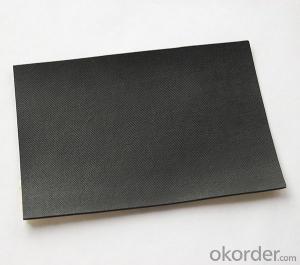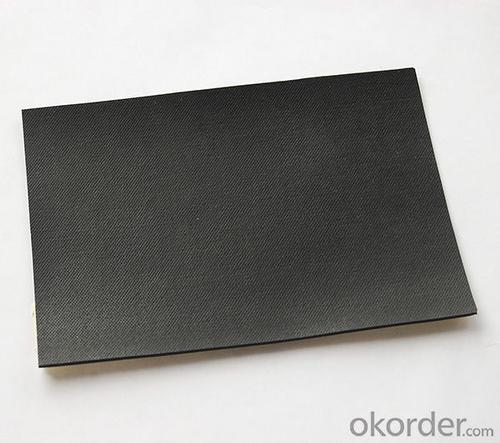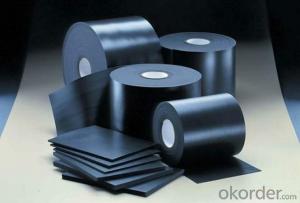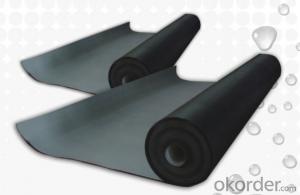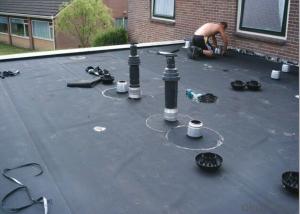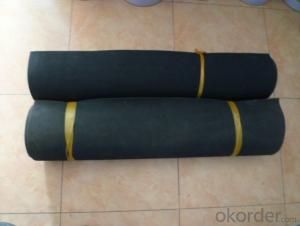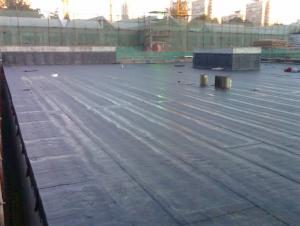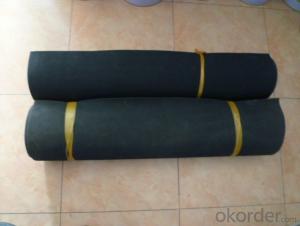EPDM Rubber Coiled Waterproof Membrane for Household
- Loading Port:
- Shanghai
- Payment Terms:
- TT OR LC
- Min Order Qty:
- 50000 m²
- Supply Capability:
- 5000000 m²/month
OKorder Service Pledge
OKorder Financial Service
You Might Also Like
EPDM Rubber Coiled Waterproof Membrane for Household
Description Of EPDM Rubber Coiled Waterproof Membrane for Household:
•EPDM waterproof sheet has excellent anti-ozone-aging performance, able to resist ultraviolet light and corrosion of many chemical corrosive materials in the atmosphere
•It has high tensile strength, high ductility and strong retractility, it has excellent crack resistance, able to effect waterproof function even with tiny vibration of buildings.
• Excellent resistance to ozone, oxidation and sunlight.
• Resistance to chemicals; resistant to most inorganic products.
Main Features of EPDM Rubber Coiled Waterproof Membrane for Household:
1>Excellent antiaging performance, service life up to 50 years
2>Working well with in 40C to 100C,it canbe constructed with a single layer in ambient temperature.
3>Waterproofing on various kinds of underground project,industrial of civil buildings and structures.
4>high extension rate, high tensile strength, small size changes at heat treatment
5>Good plant roots penetrability resistance and can be made waterproofing layer of planting roof
6>Special modified molecular structure ,effectively resolving the current domestic and foreign glue joint problem.
7>Good low temperature flexibility, and good performance of adapting to ambient temperature changes.
8>Convenient application ,solid joint, no environment pollution
9>chemical corrosion Resistance, can be used for special occasions
10>Convenient maitenance, low cost.
Specifications of EPDM Rubber Coiled Waterproof Membrane for Household:
| Material | EPDM Rubber |
| Size | 1.2m (width)*20m (length) or customized, weldable type 2.05m or 4m width |
| Thick | 1.2mm, 1.5mm, 2.0mm |
| Type | Vulcanized & Weldable |
| Pattern | Non-reinforced (homogeneous) |
| Certificate | ISO9001/14001 |
Applications of EPDM Rubber Coiled Waterproof Membrane for Household:
Widely used in roofs, basement, toilet ,swimming pool, and all kinds of industry and civil building waterproofing, reservoir, vivicism, bridge, underground, tunnel and dam waterproofing ,especially to the keystone waterproofing projects which is durability, high corrosion resistance and easy deformation.
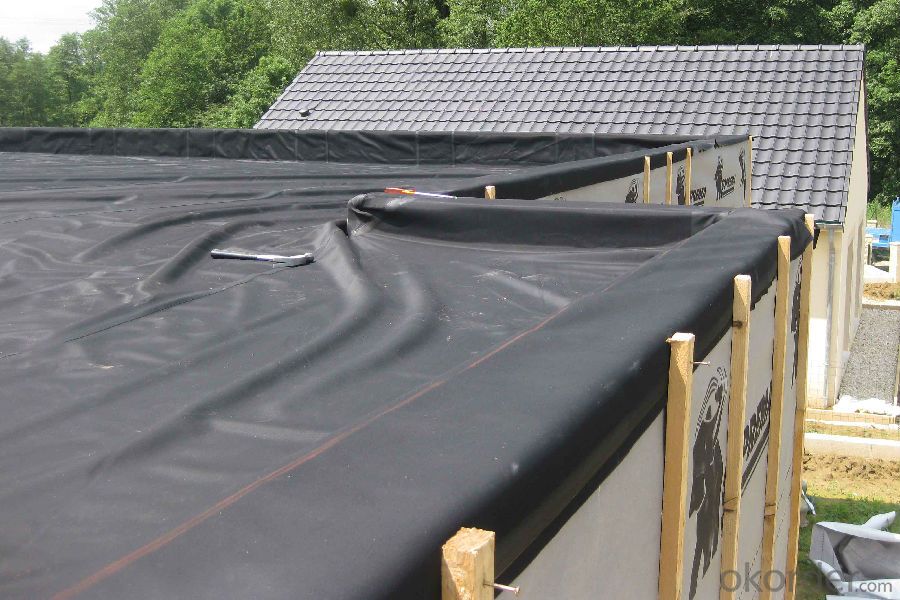
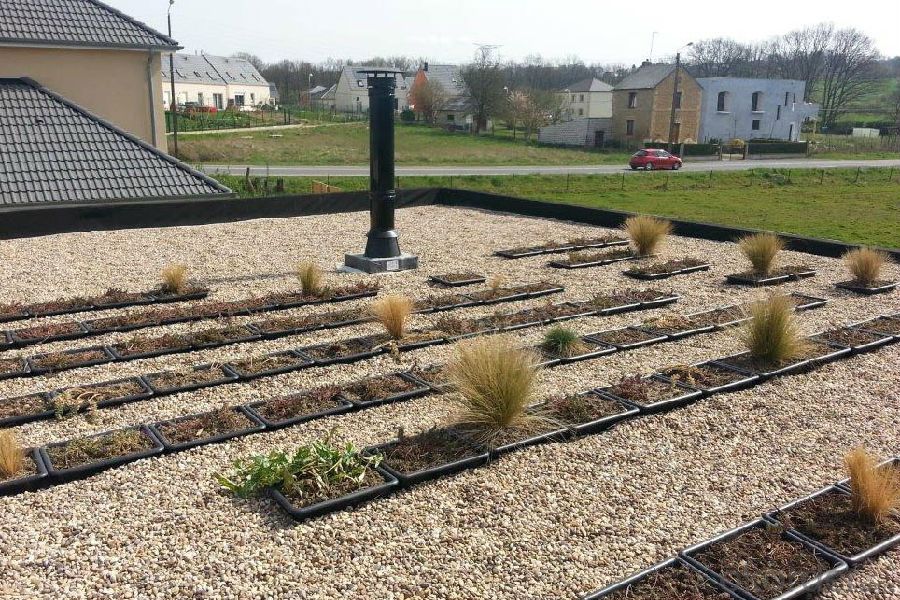
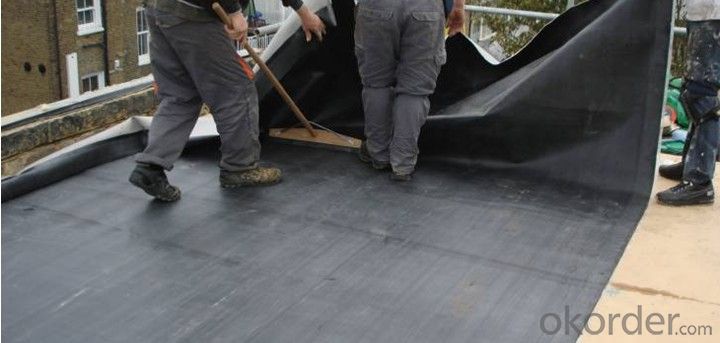
IMages of EPDM Rubber Coiled Waterproof Membrane for Household:
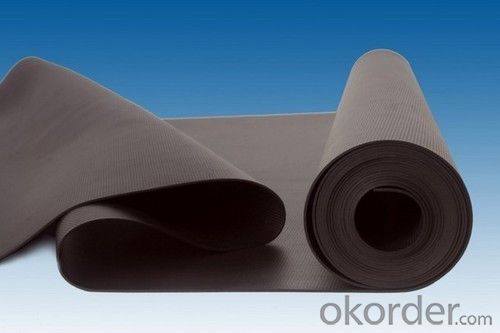
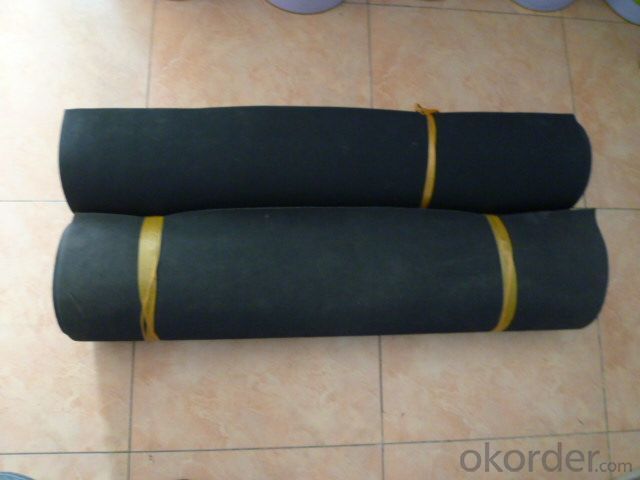
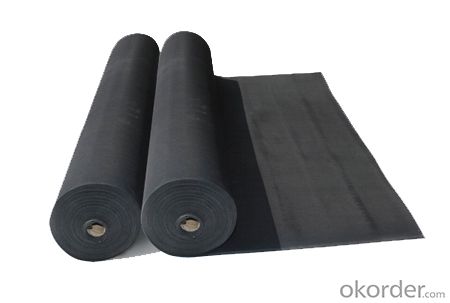
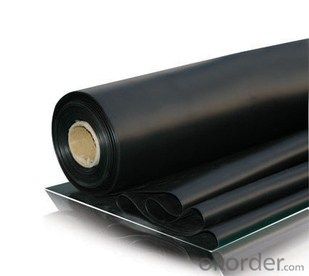
FAQ of EPDM Rubber Coiled Waterproof Membrane for Household:
1. What are we supplying?
We are specialized in producing Colorful Asphalt Roof Shingle, SBS/APP modified bitumen waterproof membrane, Self adhesive bitumen waterproof membrane, PVC waterproofing membrane, EPDM rubber roofing membrane, Single Component Polyurethane Waterproof Coating, and Spray Polyurea Waterproof Coating
.
2. How Many years experience do we have?
We have been exported to more than 20 countries in the past 15 years.
3. How long do we usually reply your request?
We always reply our customer within 24 hours.
- Q: Are waterproofing membranes resistant to earthquake-induced water pressure?
- Waterproofing membranes may offer some level of resistance against water pressure caused by earthquakes; however, their effectiveness may vary depending on the specific membrane and the magnitude of the earthquake. The primary purpose of waterproofing membranes is to create a barrier that prevents water infiltration and protects the structure from water damage. However, they are not explicitly engineered to withstand the pressure exerted during earthquakes. During seismic activity, the ground undergoes significant shaking and movement, resulting in increased water pressure in the surrounding soil and groundwater. This heightened pressure can potentially breach the waterproofing membrane, compromising its efficacy. To enhance the resistance of waterproofing membranes to earthquake-induced water pressure, additional measures may be necessary. These measures can involve reinforcing the membrane with shock-absorbing materials, installing drainage systems to alleviate excessive water pressure, and ensuring proper installation and maintenance of the membrane. It is crucial to consult a professional waterproofing expert or structural engineer when selecting a suitable waterproofing system for earthquake-prone areas. These experts can provide guidance on choosing membranes explicitly designed to withstand higher water pressure and offer better protection against earthquakes.
- Q: Can a waterproofing membrane be used in conjunction with building code requirements?
- Yes, a waterproofing membrane can be used in conjunction with building code requirements. In fact, many building codes require the use of waterproofing membranes in certain areas, such as below-grade structures or wet areas like bathrooms and kitchens, to prevent water damage and protect the structural integrity of the building.
- Q: Can a waterproofing membrane be used on precast insulation surfaces?
- Yes, a waterproofing membrane can be used on precast insulation surfaces. The membrane acts as a protective barrier, preventing water penetration and ensuring the insulation remains dry and functional.
- Q: Can a waterproofing membrane be used for a podium deck?
- Yes, a waterproofing membrane can be used for a podium deck. A waterproofing membrane is a common solution for protecting structures from water damage, including podium decks. It helps to prevent water infiltration and can ensure the longevity and durability of the deck.
- Q: Can a waterproofing membrane be used for a podium deck coating?
- Yes, a waterproofing membrane can be used for a podium deck coating. The membrane is designed to prevent water penetration and provide a protective barrier, making it suitable for waterproofing applications such as podium deck coatings.
- Q: Can a waterproofing membrane be used for a parking lot pavement?
- Indeed, a waterproofing membrane can be utilized to fortify the surface of a parking lot. Essentially, a waterproofing membrane is a substance that is applied to a surface to obstruct the entry of water. Generally employed in the realm of construction, it serves to safeguard walls, roofs, and foundations from water-related harm. Nevertheless, it can also be employed in parking lot pavements to heighten their sturdiness and longevity. Parking lots are constantly exposed to a multitude of meteorological conditions, including rainfall, snowfall, and icy conditions. Over time, these elements can infiltrate the pavement, resulting in deterioration, cracks, and potholes. By applying a waterproofing membrane to the pavement, the infiltration of water can be significantly minimized, effectively averting these issues from arising. The waterproofing membrane acts as a barricade, effectively barring water from permeating the pavement and infiltrating the underlying layers. This serves to keep the pavement dry, preventing problems associated with moisture, such as damage caused by freezing and thawing. Additionally, it offers protection to the pavement against substances like chemicals and oils, as well as any other spills that may occur on the surface. Employing a waterproofing membrane for a parking lot pavement can prolong its lifespan and reduce the need for frequent repairs and maintenance. Furthermore, it can enhance the overall appearance of the parking lot by preventing the formation of unsightly cracks and potholes. However, it is crucial to consider the specific requirements of the parking lot when selecting a waterproofing membrane. Factors such as the amount of traffic, the prevailing climate, and the type of pavement material must be taken into account to ensure the effectiveness and durability of the waterproofing system. In conclusion, a waterproofing membrane can serve as a suitable solution for augmenting the performance and longevity of a parking lot pavement. It can provide protection against water damage, prolong the lifespan of the pavement, and diminish the necessity for costly repairs.
- Q: Can a waterproofing membrane be used on tunnels with seismic protection systems?
- Tunnels equipped with seismic protection systems can indeed benefit from the use of a waterproofing membrane. It is strongly advised to employ such a membrane in order to avoid water infiltration and subsequent harm to the tunnel's integrity. Seismic protection systems are engineered to absorb and dissipate the seismic energy released during an earthquake, guaranteeing the tunnel's safety and stability. However, these systems do not provide any defense against water ingress. By incorporating a waterproofing membrane, the tunnel can be shielded from potential water leaks and seepage, which can result in reinforcement corrosion, concrete deterioration, and overall structural impairment. It is crucial to opt for a waterproofing membrane specifically designed for tunnel use, taking into account qualities such as flexibility, durability, and resistance to seismic-induced movement. Moreover, precise detailing and installation techniques must be employed to ensure a seamless and efficient waterproofing system that complements the tunnel's seismic protection measures.
- Q: Are waterproofing membranes resistant to acid exposure?
- Yes, waterproofing membranes are generally resistant to acid exposure. They are designed to provide a barrier against water and other corrosive substances, including acids. However, the level of resistance may vary depending on the specific type and quality of the membrane used.
- Q: Can a waterproofing membrane be used in schools or educational buildings?
- Certainly, schools and educational buildings can certainly make use of waterproofing membranes. These membranes are specifically engineered to halt water infiltration and safeguard the structural integrity of the building against moisture-related harm. In educational settings, where numerous students and staff congregate, it becomes imperative to uphold a secure and hygienic environment. Waterproofing membranes can be effectively deployed in a variety of areas like basements, roofs, walls, and foundations to avert water seepage, dampness, and the proliferation of mold. By incorporating a waterproofing membrane into their infrastructure, schools can ensure the long-term sustainability of their buildings, safeguard valuable equipment and resources, and furnish a comfortable learning atmosphere for students and staff.
- Q: Can a waterproofing membrane be used on crawl spaces?
- Crawl spaces often encounter moisture and water problems, which can lead to mold growth, structural damage, and other issues. By utilizing a waterproofing membrane, water seepage into the crawl space can be prevented, ensuring its dryness and protection. This membrane, typically composed of a durable and flexible material, is installed on both the walls and floor of the crawl space, creating a moisture barrier. This approach proves particularly advantageous in regions with high groundwater levels, heavy rainfall, or homes situated in flood-prone areas. Moreover, the application of a waterproofing membrane aids in enhancing indoor air quality by inhibiting the growth of mold and mildew, which thrive in damp environments. In summary, the utilization of a waterproofing membrane in crawl spaces effectively prevents water damage and maintains a healthy living environment.
Send your message to us
EPDM Rubber Coiled Waterproof Membrane for Household
- Loading Port:
- Shanghai
- Payment Terms:
- TT OR LC
- Min Order Qty:
- 50000 m²
- Supply Capability:
- 5000000 m²/month
OKorder Service Pledge
OKorder Financial Service
Similar products
Hot products
Hot Searches
Related keywords
